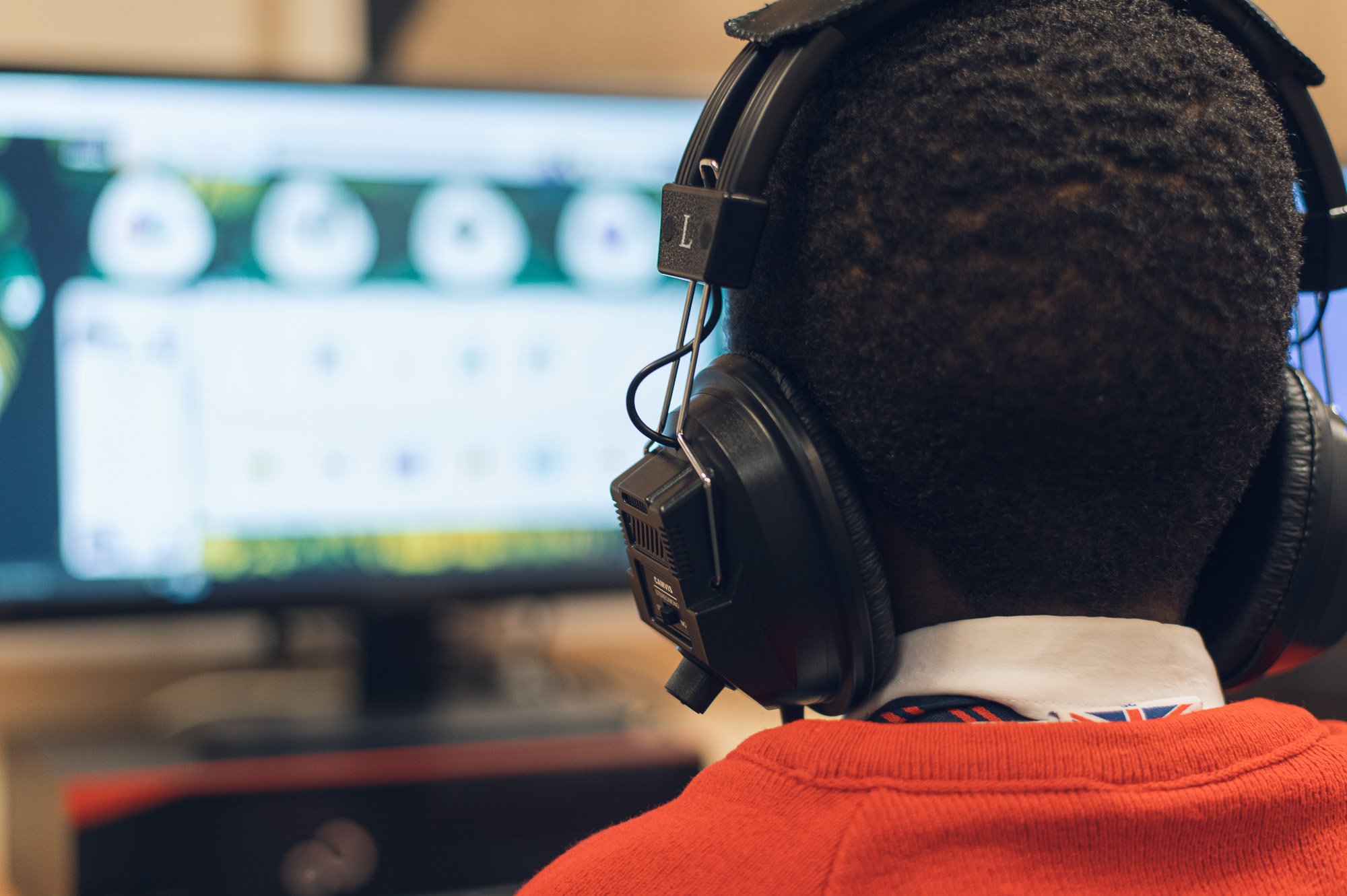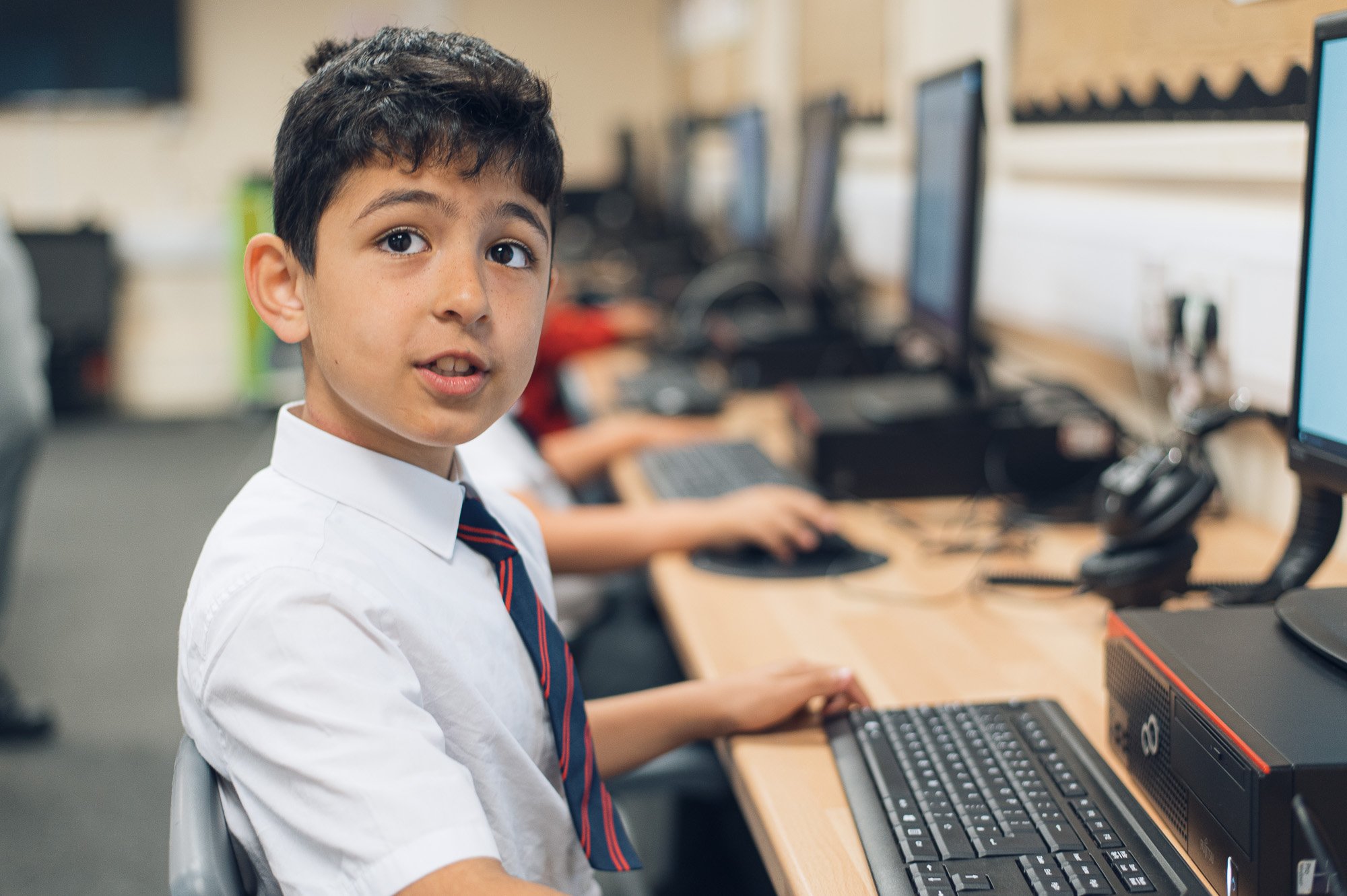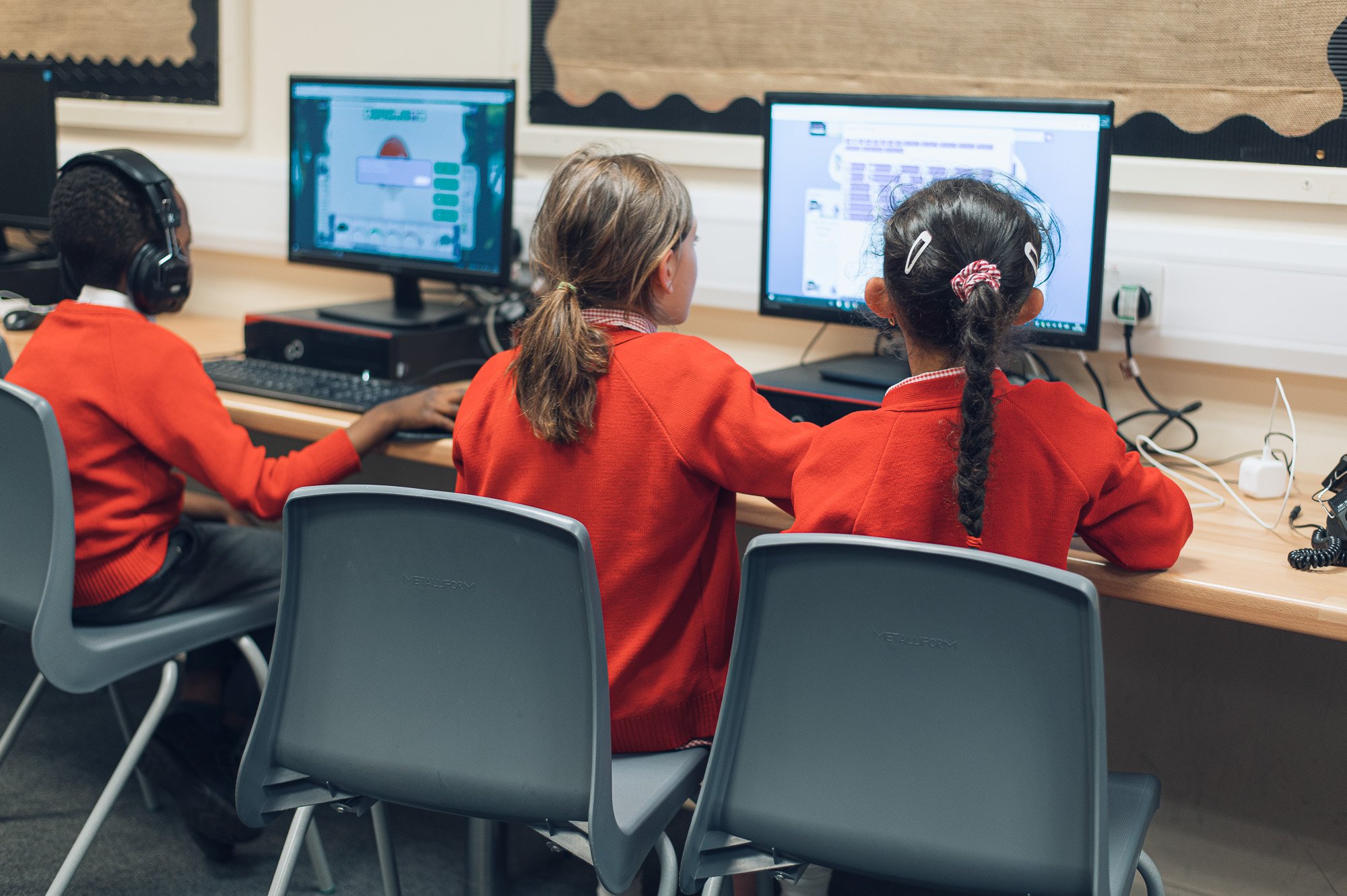
Computing
Computing
at Sacred Heart Primary School
Computing intent:
Computing is at the core of the development of society and more and more as we begin to see rapid development of technology, the skills learned within our computing curriculum are increasingly of high utility following children’s years in education. Because of this, at Sacred Heart Catholic Primary School we aim to provide for our children a comprehensive computing education which prepares them for life and education after leaving our school and their next learning phase. We aim to create inquisitive, resilient, empathetic citizens who can utilise these skills across their lives and education, as well as being ambitious and recognise the comprehensive and positive impact that computing has in every aspect of their daily lives. Furthermore, we wish to ensure that our children have a sense of pride about themselves, what they create, and their place in the world.
The skills learnt in our computing curriculum will prepare our children for a life of continual technological change, allowing them to independently explore and collaborate on a wide range of projects at the forefront of societal change. Our computing curriculum is designed to ensure we create:
Resilience- Ensure children leave with resilience to tackle problems. In computing this is a unique space where children can learn skills such as debugging and coding that ensure children can use different approaches, evaluate their success, and change them to meet their needs. Ensuring children become resilient means that they will become effective and creative problem solvers later in life, a key skills that society values.
Cultural Capital- In a world dependent on computers and people knowing how to use them, our curriculum will ensure that children have the chance to learn about the world through using computing to do so. Knowing how to use and interrogate sources from the internet is becoming increasingly important when our news comes from so many varied and online sources.
Computer Literacy- Children will leave Sacred Heart having been exposed to a range of uses of computer including word processing and basic computer literacy such as typing, Coding, Computer Aided Design and Manufacturing, photograph manipulation, and e-safety. Having known these from an early age, children will know the potential that computers hold for their professions and lives.
Vocabulary- Children will learn and use a wide range of vocabulary that will develop their understanding of key terms relating to the world around them, and subject specific vocabulary.
Equal opportunities- Children will all have access to a range of opportunities to engage with new technology and the removal of barriers to learning for all of our children regardless of their experience and starting points within computing.
In addition, an integral part of our curriculum focuses on children’s ability to stay safe online. In a world increasingly focused and accessed through the internet, it is integral that we educate and ensure that our children are prepared and know how to keep themselves, and others safe. Thus our curriculum reflects this need to educate our children about the dangers and positives of accessing the internet online. Our filtering and monitoring policy, as well as our fair use for staff and children, can be found on the website here:
Implementation of Computing:
We have broken our Computing curriculum into three main strands, taken from the national curriculum.
Computer Science- The technical skills of using a variety of hardware and software- this includes knowledge such as debugging programming, understanding computer networks, and designing programmes for a specific purpose.
Information Technology- the ability to use and know about a variety of systems for storing, retrieving, and sending information. This includes using excel, as well as how to save and manage files.
Digital Literacy- The ability and knowledge to know about the development of technology in history, as well the skills to access the curriculum and technology more widely. This includes typing skills, and ranges form how to login to websites to knowing how to use technology respectfully and responsibly.
Online Safety- The ability and knowledge to keep themselves and others safe online, which ranges from how to interact with other online in a respectful manner to noticing strange activity on their accounts.
Our computing scheme has clear progression of skills and knowledge within our curriculum, as well as further enrichment to our curriculum through local opportunities. Our progression of skills and knowledge shows the skills taught in all of the different year groups and how these are developed across the year to ensure that attainments targets are met in the progression of key computing skills.
Our policies clearly show how our computing curriculum covers the national curriculum attainment targets as well. Our curriculum supports this through its spiral design, where we regularly revisit and develop key concepts, skills and knowledge to ensure retention and development of complexity of these ideas. For instance, the idea of using technology within EYFS may be exploring using Bugbots to give instructions, while Year 5 explore how to create coding for traffic lights.
In addition, our curriculum develops these skills from the foundation stages. Our children at all ages regularly interact and get to use technology in a range of activities. These work towards the Early Learning Goals of our children, and enrich their own experience of technology from a young age.
Our curriculum also incorporates cross-curricular links in all subjects. Children will throughout the curriculum make strong links with computing, including using a range of technology, software and hardware, in various other subjects. This ensures that children have an appreciation for how technology enriches our lives on the daily basis, and can be used as a learning tool in its own regard.
To achieve all of this, our computing teaching includes a range of strategies from independent tasks and problem solving activities to collaboration and discussion between peers. We ensure that our lessons are engaging and appeal to those with a variety of learning styles. We ensure that all our of our children meet each problem adapted to themselves so that they can challenge and stretch their own learning. We frequently revisit how to keep safe online because of its relevance to all aspects of our computing curriculum, and our children’s lives. We regularly audit our staff and pupil’s voice to continually develop, and guide how our curriculum changes.
we aim to enable all children to achieve to their full potential. This includes children of all abilities, social and cultural backgrounds, those with SEND and EAL speakers. We place particular emphasis on the flexibility technology brings to allowing pupils to access learning opportunities, particularly pupils with SEN.
Impact of Computing:
The impact of our curriculum is continually monitored through pupil voice, formative and summative assessment. We use the 2simple computing assessment tool to accurately identify attainment of pupils. Children are also encouraged to assess their, and their peers, work continually.
Each lesson includes opportunities for teachers to assess the children’s learning, and we regularly use a variety of assessment methods to monitor what children have learned and retained. There are ample opportunities for children to record their learning in a variety of ways from quizzes to presentation to others. Our children leave our school equipped with a variety of skills and the knowledge of how to use them. Our key outcomes from each of the different stages are:
Early Years:
We provide our pupils with a broad, play based experience of computing in a range of contexts. We believe the following:
· Early years learning environments should features ICT scenarios based on experience in the real world.
· Pupils gain confidence, control and language skills through opportunities.
· Outdoor exploration is an important aspect, support by technology.
· Recording devices can support children to develop their communication skills.
Key Stage 1
· Understand what algorithms are, and how they are implemented as programs on digital devices.
· Write a test simple programs.
· Organise, store, manipulate and retrieve data in a range of digital formats.
· Communicate safely and respectfully online, keeping personal information private, and recognise common uses of information technology.
Key Stage 2
· Design and write programs that accomplish specific goals, including control or simulating physical systems.
· Use sequence, selection and repetition in a variety of programs.
· Use logical reasoning to explain how a simple algorithm works, and detect error in them.
· Understand computer network including the internet and their uses in society.
· Describe how internet search engines find and store data.
· Select, use, and combine a variety of software on a range of digital devices to accomplish given goals.
Overview



















